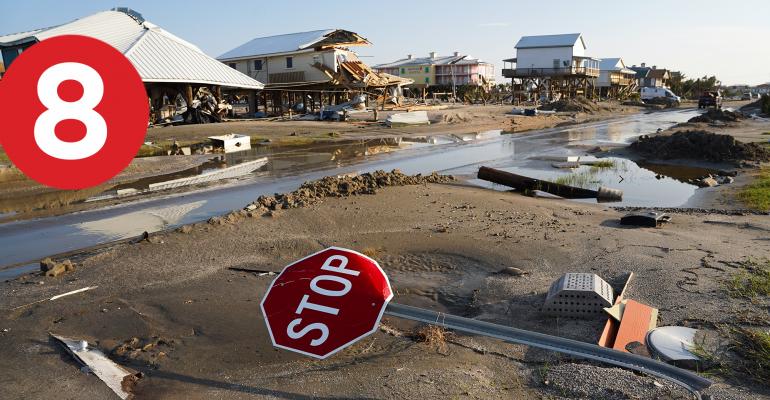- Many House Hunters Are Now Choosing Diverse Neighborhoods That Reflect a Changing Population “Across the U.S., home buyers and renters are seeking out socially, racially and culturally diverse communities. The trend includes affluent buyers eschewing homogeneous neighborhoods. In response, more developers, spurred by the increasing demand and the national debate on social and racial equity, are finding ways to put more-inclusive properties on the market, such as blending affordable units with market-rate homes, adding space for resident services and including neighborhoods in the planning. Meanwhile, some developers and architects are addressing how to mitigate the negative effects of gentrification and the uprooting of established communities.” (The Wall Street Journal)
- Investors Could Lose $8.4 Trillion to the Climate Crisis over 15 Years as Ocean Health Declines, WWF Warns “Investors face a hit of $8.4 trillion to assets and revenues over the next 15 years as the climate crisis damages ocean health, unless action is taken to hold down global temperatures, the World Wildlife Fund has found. Under a ‘business as usual’ scenario in which little is done to address rising temperatures, investors in 66% of listed companies are at risk of big losses, according to WWF research carried out with research group Metabolic.” (Insider)
- Rental Assistance Payouts May Be Speeding Up, But Victory Over Mass Evictions Is Not Assured “Some officials seem to be taking a victory lap as rental assistance payouts pick up speed, but an eviction crisis may still be happening.” (Bisnow)
- Walgreens Boosts Stake in Primary Care Company VillageMD with a $5.2 Billion Investment “Walgreens Boots Alliance said Thursday that it has agreed to become the majority owner of VillageMD, as it opens hundreds of doctor offices with the primary-care company. As part of the deal, the drugstore chain will invest $5.2 billion in VillageMD. That will increase Walgreens’ ownership stake from 30% to 63%. VillageMD will remain an independent company with its own management and board.” (CNBC)
- Howard Hanna Built a Big Real Estate Firm and Kept It in the Family “While many others joined national brokerage chains, Howard Hanna Real Estate Services remained family-owned even as it spread from Pennsylvania to 10 other states. Around the age of 65, in the mid-1980s, he began turning over management to his three children, all still active in running the firm, which describes itself as the nation’s largest family-owned real-estate brokerage, with more than 13,000 agents and employees.” (The Wall Street Journal)
- Sephora Introduces New Two-Hour Delivery, Live Help Services “A beauty giant is expanding its same-day delivery options and reintroducing an online shopping advisory tool. As part of its Beauty on Demand omnichannel fulfillment hub, Sephora is rolling out a new, proprietary, same-day delivery service. Customers who shop for items on Sephora’s e-commerce site or mobile app can select “same-day delivery” on the product detail page, input their ZIP code, and then add the desired product to their carts.” (Chain Store Age)
- Walmart to Increase Night Operations to Help Ease Supply Chain Congestion “Three of the nation’s largest goods carriers pledged to increase their efforts to address supply chain problems that are already causing some bare shelves across stores. The Biden Administration announced Wednesday that Walmart, FedEx and UPS will expand their efforts to help with ongoing supply chain bottlenecks and shortages resulting from the pandemic.” (Chain Store Age)
- Barry Sternlicht Calls on the Government to Pay People to Go Back to Work “With job openings near record highs and labor participation dropping, the lower-paying jobs that underpin the economy are in crisis, Barry Sternlicht said.” (Bisnow)
0 comments
Hide comments

